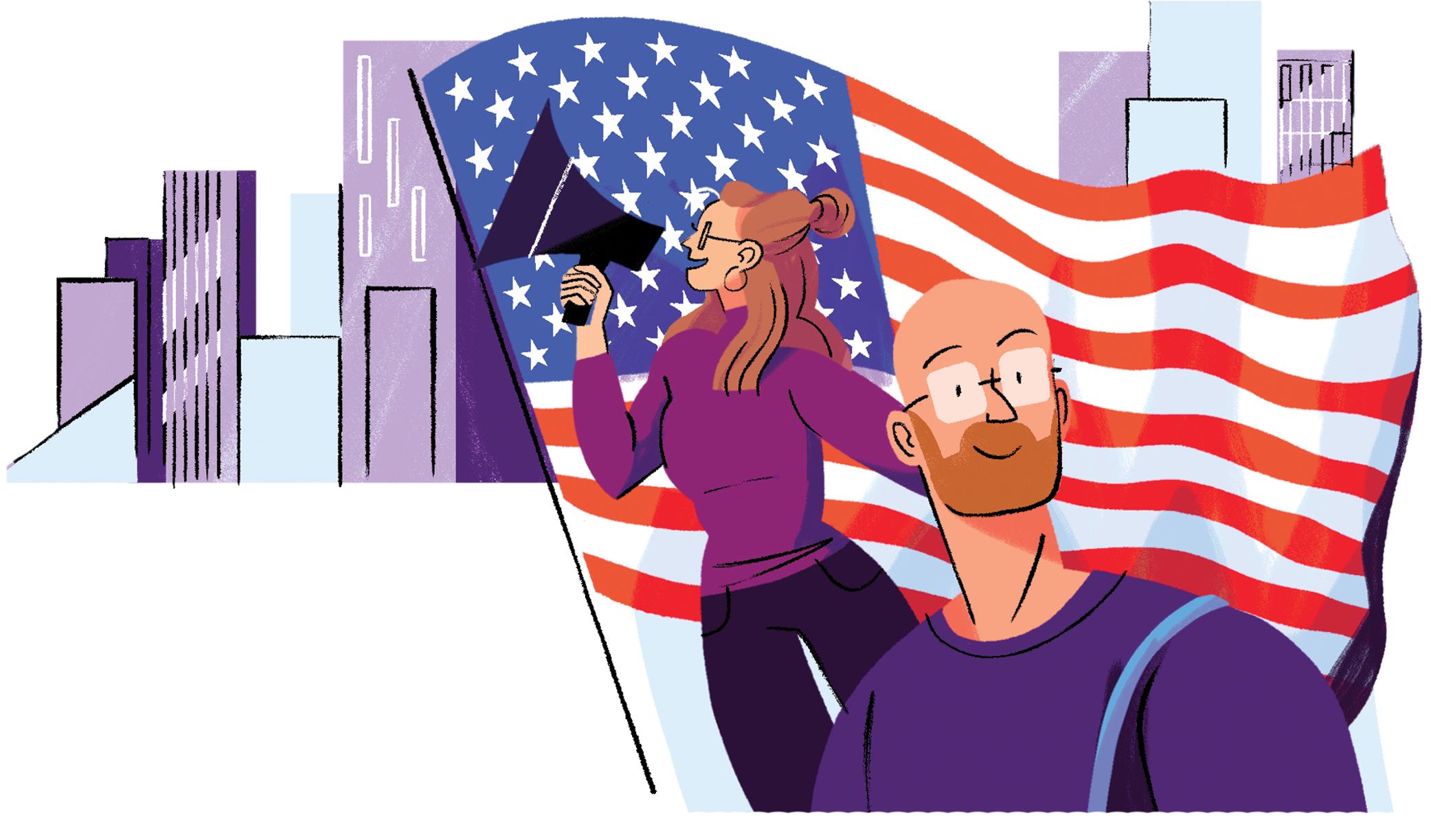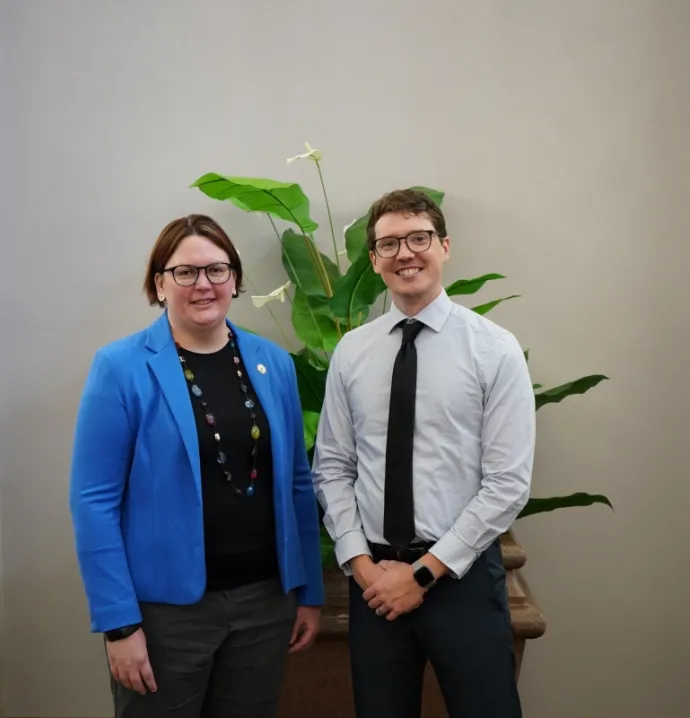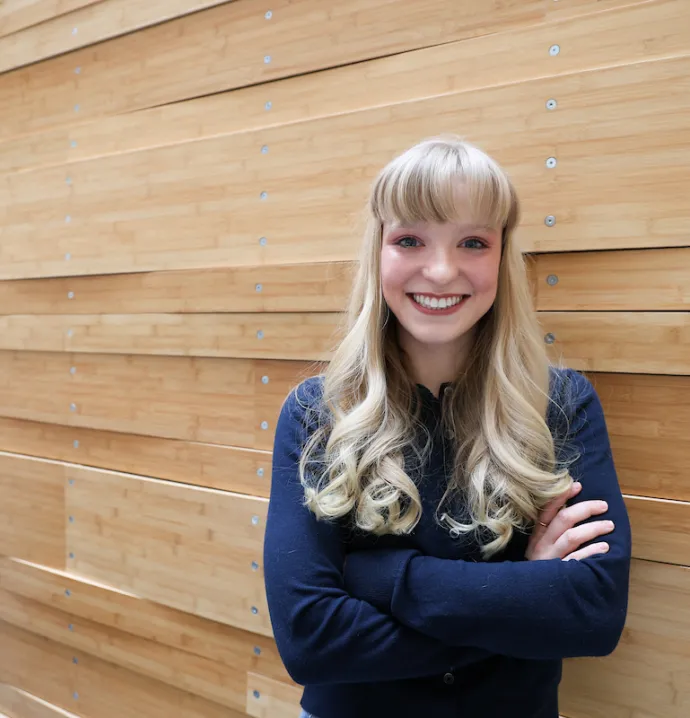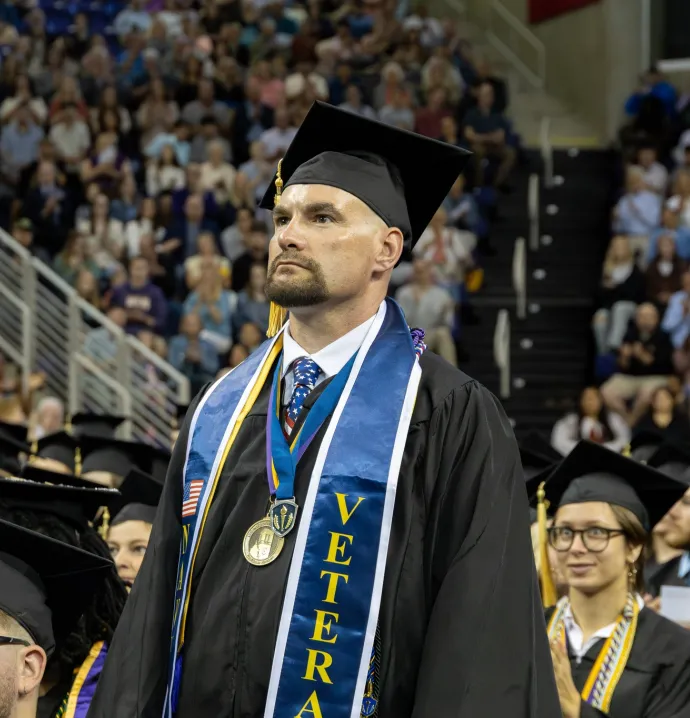A hub for civic education
A hub for civic education
Soon, the University of Northern Iowa will be known for civic education in Iowa.
That’s in part because of a recent initiative happening across campus, fueled by a highly-competitive Humanities Connection Grant from the National Endowment for the Humanities (NEH).
The project is titled, “Humanities for Civic Education: Preparing Teachers and Students for Engaged Citizenship.” As one of the NEH grant reviewers noted, it has “the potential to improve civic education in the state as a whole.”

The interdisciplinary effort, which puts humanities in the spotlight, is led by a team of four department heads: Scott Peters, professor of political science; Jennifer McNabb, professor of history; Susan Hill, professor of religion; and Jim O’Loughlin, professor of languages and literatures.
The goals of the initiative are twofold.
First, to provide students with the skills necessary to engage in civic discourse and accommodate multiple viewpoints. The team gathered a group of faculty to design a multidisciplinary certificate named Civic Literacy, Engagement and the Humanities, offered through UNI’s general education program. The group also created a standalone minor, both of which are slated to be included in the 2024-2025 academic catalog.
“Precisely because this initiative is interdisciplinary, it posits civic literacy and engagement at the heart of the humanities and at the heart of what a student-centered institution like UNI is well positioned to accomplish,” O’Loughlin said. “It’s not a coincidence that our students’ voting percentages are among the highest in the nation, and we are building upon that strength.”
The second goal is to establish professional development opportunities for faculty across campus to help them learn strategies to enhance classroom discussions about controversial issues. Classroom discussion is an important part of learning, and civil discourse is a skill that students need to develop. To kick off this part of the initiative, in Fall 2023 UNI’s Center for Excellence in Teaching and Learning partnered with The Discussion Project, centered at the University of Wisconsin-Madison, to hold a workshop focused on fostering productive and civil classroom discussions.

Impact on future generations of students
The group also includes Benjamin Forsyth, associate dean for undergraduate studies and teacher education, who was added to the team because teacher preparation is key to the group’s vision, given their intentions to create programs that assist teaching majors in empowering their own students in humanities and civic engagement.
Forsyth noted that a quarter of undergraduate students at UNI are in teacher education, so it’s a big group that the initiative hopes to attract. The idea is that if pre-service teachers learn civic values during their own education, they’ll apply it to their future classrooms and help future generations of K-12 students better understand how the humanities interface with civic engagement.
“If we have more educated teachers on civic education, it is likely to show up more often in their own classrooms,” Forsyth said.
“We hope we’re known in the state as the center for civic education,” added Peters. “Everybody across the political spectrum says we need more and better civic education. Not only do we have a strength in that already on campus, but we’re also well-suited to make a big impact because of the College of Education and our future teachers.”
Prestigious grant amplifies work
Having an NEH grant to support the initiative increases the visibility of the group’s work. Their desire to ensure that pre-service teachers and all UNI students are served well by this project emphasizes UNI’s commitment to both current and future citizens in Iowa as well.
“What students learn in the humanities, and in interdisciplinary programs like this one, are new ways of thinking, different perspectives they may not have encountered before, and ways to engage in civil discussions with people who are different from them. They discover ideas and texts and people that will expand their ideas about the world,” said Hill.
McNabb shared that the initiative illustrates the kind of work that should be happening on a college campus and in an academic environment, noting that the hallmark of the work being done on campus is interdisciplinary collaboration.
“Instead of building silos, we’re trying to figure out how to build bridges,” she said. “And that’s sort of what civic engagement itself is. That’s a core idea … that we learn to listen and build on each other’s strengths and find problem-solving means of moving forward.”




